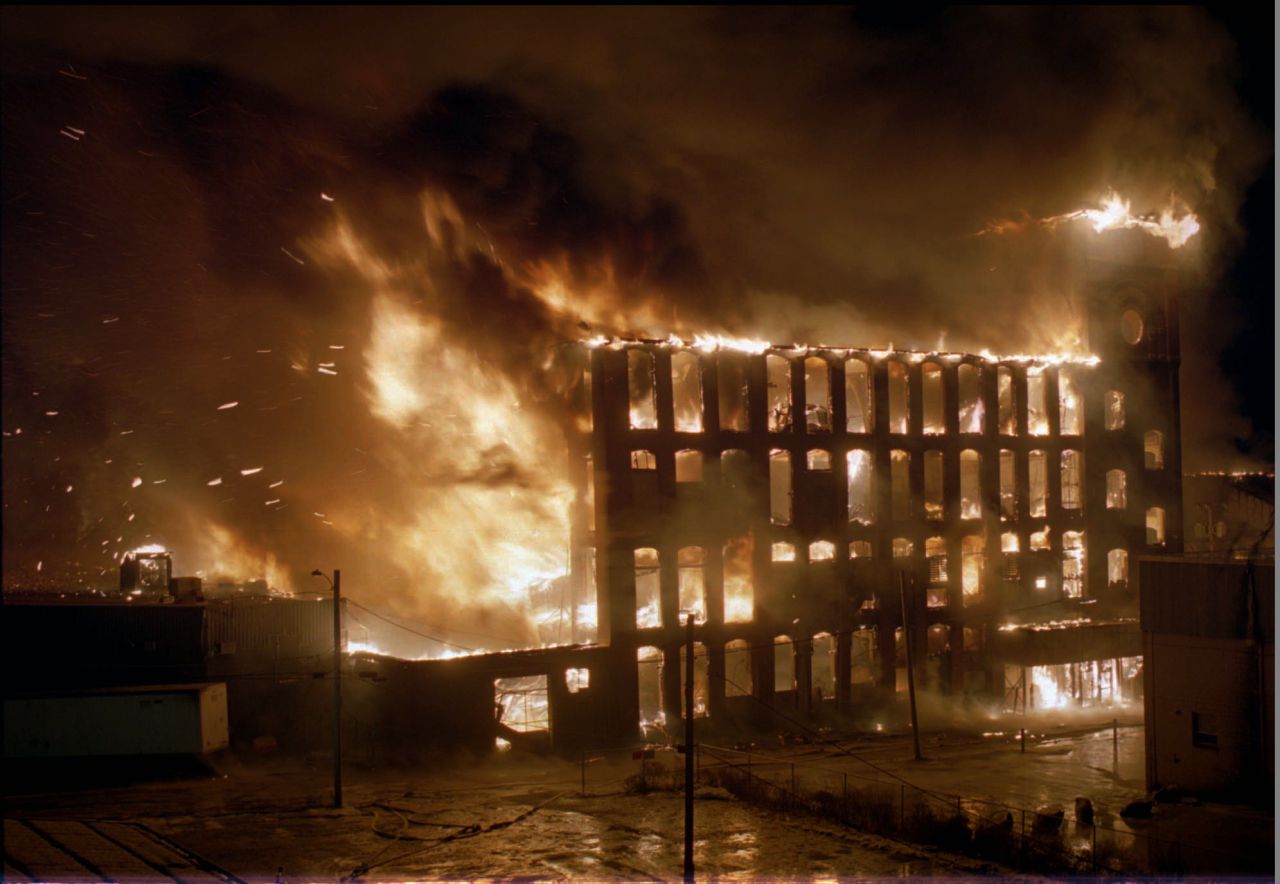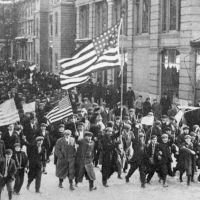Primary Source
"Downtown" by Steve Bailey
If Aaron Feuerstein can pull off his latest miracle, he will have written another improbable chapter in his own amazing story. But more importantly it could mean two things that Massachusetts desperately needs: saving good-paying manufacturing jobs and building affordable housing. Money, of course, is what stands in the way. But for the giant creditors like General Electric that now own Malden Mills, the money is chump change.
Even chump change, it turns out, is too much.
Consider the numbers. Tomorrow, Feuerstein, the man who became a national hero when he refused to lay off his workers following the fire that destroyed his mill just before Christmas 1995, and his new partner, Boston developer Winn Cos., are expected to formerly deliver their proposal to buy the Lawrence textile company and build 600 units of housing in the abandoned mill that sits beside the state-of-the-art factory Feuerstein built after the fire. They are expected to offer about $75 million for Malden Mills, or about $18 million less than the creditor's group said it was willing to resell the company to Feuerstein for as it came out of bankruptcy in August.
That would cost GE, Malden Mills's largest equity holder, an additional $2.7 million. To repeat: It would cost GE $2.7 million. Last year the company made a profit of $14 billion, meaning it earned $2.7 million every hour and 45 minutes a day last year, or in less time than it takes you to watch a movie at home. It is also less than half the $6.9 million in bonus and salary GE paid its chief executive, Jeffrey Immelt, last year.
GE's response? The Feuerstein-Winn offer is "far too low an amount to be acceptable," a spokesman for GE Corporate Financial Services told me yesterday. This from the company that brings good things to life. Feuerstein wouldn't comment.
At 77, Feuerstein is a folk hero, a businessman with a heart, to many of us. But to many in business he is nothing short of nuclear waste. He uses his bully pulpit on "60 Minutes" or the front page of The Wall Street Journal to make anyone who stands in his way look bad, and to get what he wants, his critics say.
Good for him. In a world where the mantra is lower costs and higher profits, Feuerstein uses what he has, and what he has is the appreciation of a nation that saw one executive stand by his workers in a way that few would. Feuerstein is flawed - his overbuilding after the fire helped put his company back into bankruptcy - but no one doubts the man's heart.
Right now Feuerstein sees an opportunity to buy back his textile plant and build housing in Lawrence, one of America's poorest cities. Feuerstein and Winn make an oddly complementary pair: Winn brings capital and housing know-how, and Feuerstein's goodwill could be a powerful magnet in attracting highly competitive government dollars. If the creditors say no and Winn walks, the entire Merrimack Valley will have lost a precious opportunity.
To say nothing of Malden Mills's 1,200 workers. Their tenuous future was spelled out in a letter from David Orlofsky of Kroll Zolfo Cooper, a workout firm now running Malden, to the US Export-Import Bank, which is considering loan guarantees for the sale of the mill. "It has become clear that a majority of investors or managers charged with running Malden's business would be likely to make the strategic decision to relocate a substantial part of Malden's operations overseas over the next several years," Orlofsky wrote. He added: "By contrast, Malden's current chairman and president, Mr. Aaron Feuerstein, believes that it is not only feasible, but desirable, to maintain manufacturing operations in the United States."
What a concept. No wonder the man makes some people uncomfortable.
Boston Globe, December 3, 2003.







